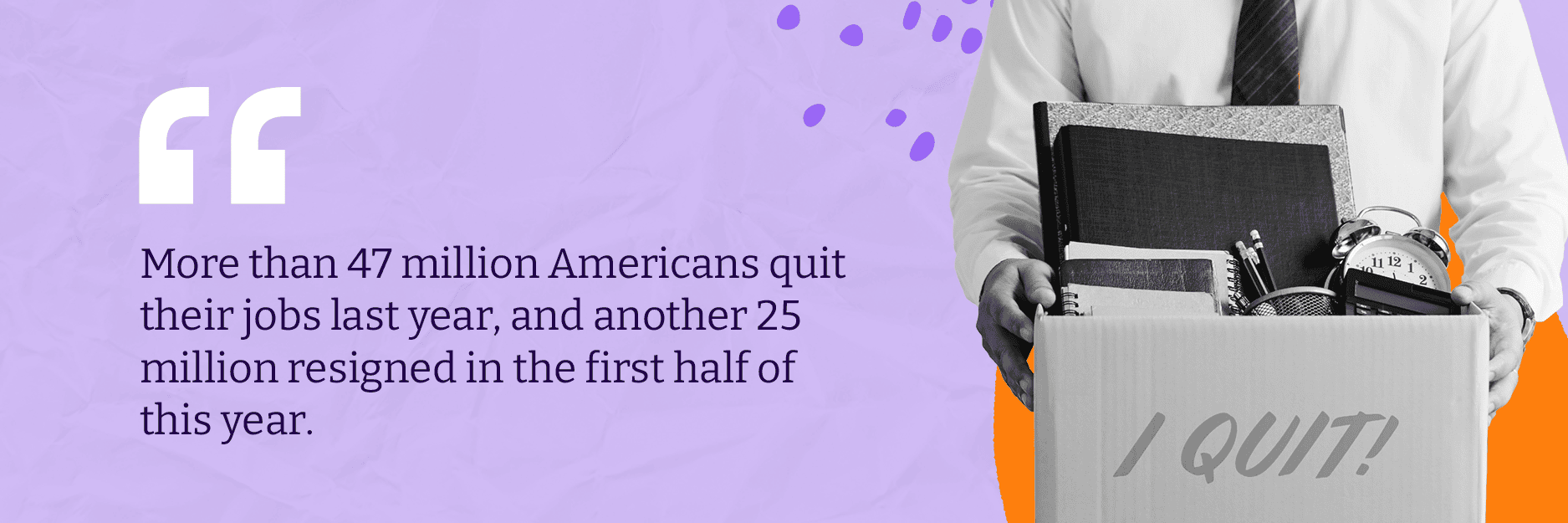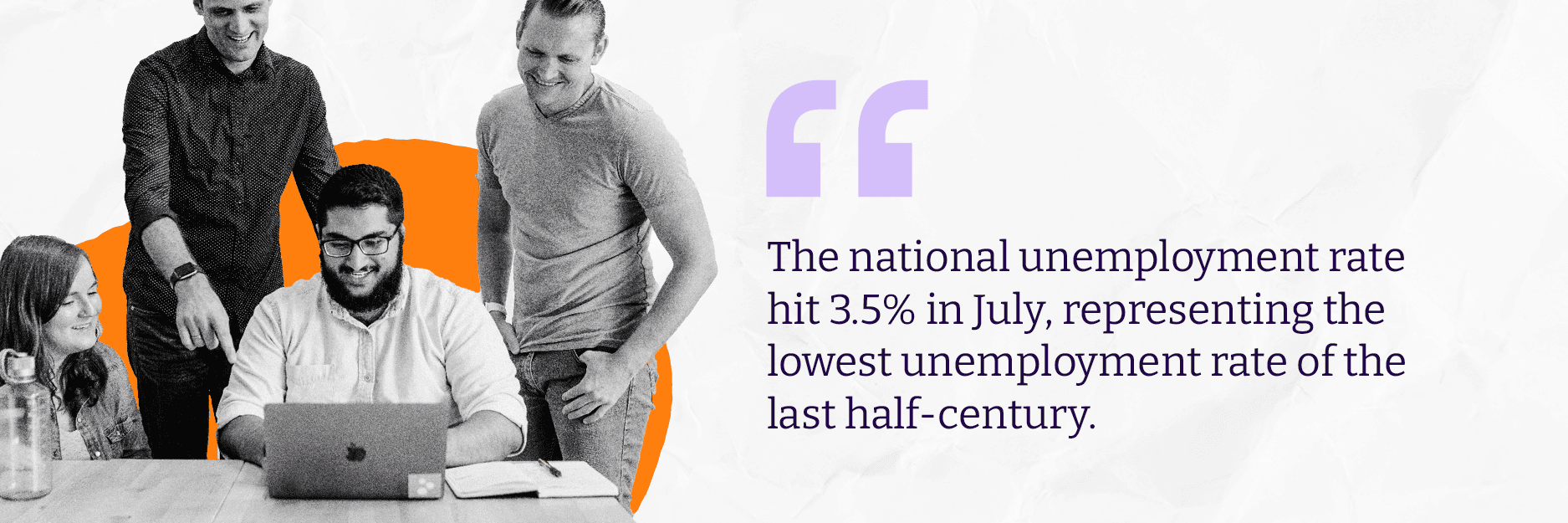The Great Regret Doesn’t Mean You Can Slack Off On Employee Experience

Barry Nyhan
Senior Demand Gen & Marketing Ops
September 6 2022

Are we really in the midst of the Great Regret? Can employers assume that their people will stay put because of it? Jared Lindzon takes a closer look.
Record numbers of workers left their jobs in the wake of the pandemic and according to recent reports, many of them now feel a sense of remorse.
More than 47 million Americans quit their jobs last year, and another 25 million resigned in the first half of this year. This trend – dubbed the Great Resignation – is attributed to a number of concurrent trends, including a change in priorities, a desire to find work that provides greater flexibility, and the resuming of career transitions that had been put off during the rocky economic period of the early pandemic.

Now, according to a widely cited study recently conducted by Joblist, more than a quarter regret their decision in what publications like Inc., Bloomberg, CNBC, Business Insider, Forbes, and many others have referred to as “the Great Regret.”
The problem is that the data behind the so-called trend is flimsy at best, yet it could still have real-world implications.
We shouldn’t undermine employee expectations
It’s no secret that some employers have been struggling to keep up with new employee expectations, particularly in regard to things like flexibility and work-life balance. Now I fear many will read headlines about a ‘Great Regret’ and believe such demands were all just a passing fad. Those who refused to give in to what they considered unrealistic employee expectations over the last couple of years might even feel vindicated by their decision to ignore them.
The Joblist study, however, should not be taken as proof that employees are no longer in the driver’s seat, that employers no longer need to provide employees with greater flexibility, or that we’re now in an employer’s market. If you don’t believe me, just look at the data.
According to the Bureau of Labor Statistics, 4.2 million Americans quit their jobs in June (around the same time the Joblist survey was conducted), which is roughly consistent with the level of resignations seen in the five months prior. That’s also more than the roughly 4 million resignations seen one year earlier in June of 2021, as well as in April of 2021 when the Great Resignation was first identified in America.
The jobless rate has also been dropping consistently and shows no sign of slowing down, with all 50 states and the District of Columbia seeing their jobless rates decline over the last 12 months. In fact, the national unemployment rate hit 3.5% in July, representing the lowest unemployment rate of the last half-century.

Perhaps even more telling is one data point captured in the Joblist study itself; one that was not nearly as widely publicized as the “one-in-four quitters regret their decision” narrative. According to the same study that was cited as proof of the Great Regret trend, only 17% of respondents would consider returning to their old jobs.
While it is true that 26% of survey respondents have regrets about quitting their jobs, a certain degree of ‘the grass is always greener’ should be expected. Furthermore, 40% of those who regret quitting were surprised to find that the job market was more difficult than anticipated, which was the most frequently cited reason for having some regrets. What that suggests to me is all the talk of a Great Resignation and a historically friendly candidate market created unrealistic expectations for many job seekers.
Related → Signs an employee is about to quit
What the data really tells us about the Great Regret
The study also found that 22% have regrets because they miss their old colleagues, 17% say their new job isn’t what they had hoped for, and 16% say they didn’t realize how good they had it at their old job.
Taken together, this data does not make a strong case for a Great Regret – maybe a Mild Regret or a Somewhat Statistically Significant Regret at most – but not enough to suggest a high proportion of job hoppers wish they had stayed with their former employer.
Even joblist, when presenting the findings in their study, hedged the claim by framing it as: “Great Resignation brings great regrets (for some).” Few of the publications that ran with the story included the qualifier in brackets.
What scares me is the number of employers that will see the headlines and believe that the Great Resignation is over, that it was all just a temporary trend, that it’s an employer’s market again, and that they no longer have to take employee experience seriously.
The data hardly proves this trend exists, and insofar that it does there is much better data to suggest that we’re still in a historically tight labor market, and that – despite economic uncertainty, high inflation, and reasonable recessions fears – it is very much still a candidate’s market.